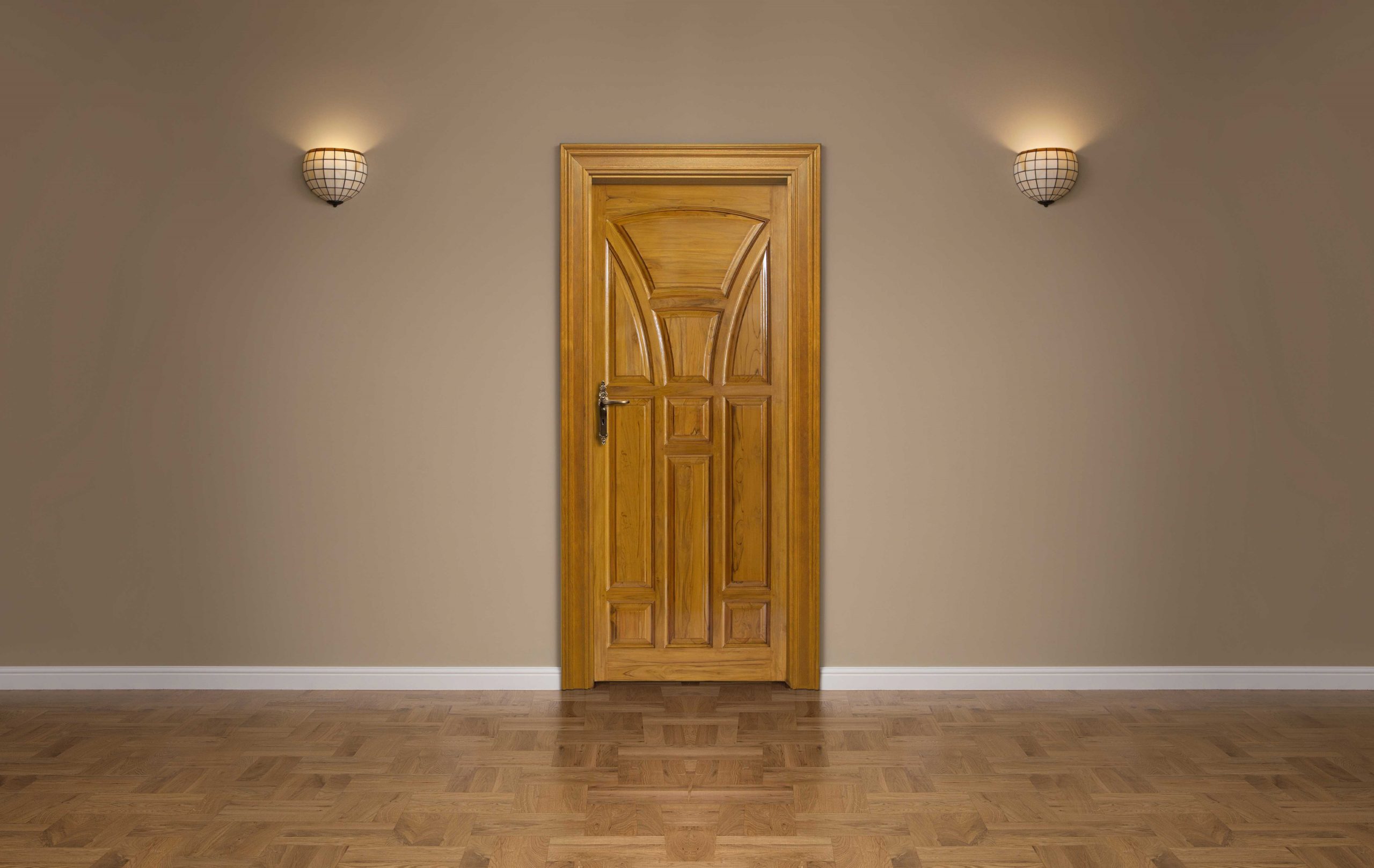Bedroom doors are essential to the style, privacy, and function of a bedroom space. Choosing the right door not only enhances your room’s appearance but also improves insulation and soundproofing, creating a tranquil environment for rest. The right bedroom door can significantly impact the room’s comfort, aesthetic, and functionality.
1. Importance of Choosing the Right Bedroom Door
A. Enhances Privacy and Sound Insulation
Bedroom doors act as a sound barrier, keeping external noise out and adding a layer of privacy. Opting for solid wood doors, for example, helps improve soundproofing, which is crucial in busy households or homes with shared spaces.
B. Adds to Room Aesthetics
Bedroom doors come in various designs, from classic paneled doors to modern glass-inlaid options, allowing you to select a style that complements your room’s decor. Doors are no longer just functional; they contribute to the room’s visual harmony.
C. Increases Energy Efficiency
Quality bedroom doors provide insulation, helping to retain heat during colder months and cool air in warmer months. This can reduce heating and cooling costs, especially if your door material has good thermal properties.
2. Types of Bedroom Doors
A. Hinged Doors
Hinged doors are the most common type, attached by hinges on one side and opening inwards or outwards. They’re versatile and can be styled to suit both traditional and modern interiors.
- Single Hinged Doors: Ideal for standard-sized bedrooms, offering simplicity and functionality.
- Double Hinged Doors: These add grandeur to large bedrooms, creating a wider entryway and a luxurious feel.
B. Sliding Doors
Sliding doors are popular in modern homes, especially where space is limited. They slide along a track, taking up minimal space.
- Pocket Doors: Pocket doors slide into the wall cavity, making them perfect for smaller bedrooms where space is at a premium.
- Barn Doors: Barn doors bring a rustic charm and are often used in modern or farmhouse-style homes, sliding across a visible track outside the wall.
C. Bifold Doors
Bifold doors fold in on themselves, typically used for closets or en-suite bathroom areas within the bedroom. They are space-saving, yet stylish and functional.
D. French Doors
French doors are known for their elegance and feature glass panes that allow light to flow between rooms. They’re ideal for master bedrooms with adjoining balconies or private outdoor spaces, adding a touch of sophistication.
E. Louvered Doors
Louvered doors feature horizontal slats that allow for ventilation, often used for closets. While they may not offer complete privacy, they are functional for specific areas within or adjacent to the bedroom.
3. Popular Bedroom Door Materials
A. Solid Wood
Solid wood doors are durable, providing excellent insulation and soundproofing. They add a timeless look and come in various finishes, like oak, walnut, or mahogany.
B. Hollow Core
Hollow core doors are lightweight and affordable, making them a common choice for interior bedroom doors. However, they don’t offer the same soundproofing or durability as solid wood.
C. MDF (Medium Density Fiberboard)
MDF doors are smooth and affordable, offering a solid, painted finish. They resist warping and are popular for painted doors with modern or contemporary designs.
D. Glass
Glass doors, especially frosted or textured glass, bring a modern touch to bedrooms while still maintaining privacy. They’re perfect for adjoining en-suite bathrooms or bedrooms with attached balconies.
E. Metal and Fiberglass
While less common in bedrooms, metal or fiberglass doors are durable and offer excellent insulation. They are often used in industrial-style interiors, bringing an edgy, contemporary look.
4. Styles and Finishes for Bedroom Doors
A. Paneled Doors
Paneled doors are classic and versatile, available in single, double, or multiple-panel designs. They complement traditional and contemporary interiors alike, offering a timeless look.
B. Flush Doors
Flush doors have a smooth, flat surface, making them ideal for modern or minimalist bedrooms. They are easy to paint and customize with stains or veneers.
C. Glass-Inset Doors
Glass-inset doors feature glass panels within the frame, often frosted or etched for privacy. These doors add a sophisticated, contemporary touch, allowing for light flow without compromising privacy.
D. Shaker Doors
Shaker doors have a recessed panel design, bringing a subtle elegance suitable for both modern and farmhouse-style bedrooms. They are highly customizable in terms of color and finish.
E. Custom and Designer Doors
For those seeking unique styles, custom doors allow for personalized design, materials, and finishes. This is an excellent option if you want a standout feature for your bedroom.
5. Tips for Selecting the Right Bedroom Door
A. Consider Room Size and Layout
For smaller rooms, space-saving options like sliding or pocket doors are ideal. In larger bedrooms, a double or French door can add elegance and create an open, airy feel.
B. Think About Privacy Needs
For shared living spaces, solid or MDF doors offer better soundproofing than hollow core doors. For en-suites, glass or louvered doors can work well.
C. Match with Bedroom Decor
Choose a door style and finish that harmonizes with the overall decor. For instance, a rustic wooden door suits a farmhouse-style bedroom, while a flush or shaker door works well in minimalist interiors.
D. Focus on Quality and Durability
Invest in a high-quality door, especially if sound insulation and durability are priorities. Solid wood and MDF doors offer a balance of durability and aesthetics for long-term use.
E. Factor in Maintenance
Consider how easy it will be to clean and maintain the door. Smooth surfaces like glass and painted MDF are easier to clean, while textured wood may require more care.
6. Installation and Maintenance Tips
A. Professional Installation
Proper installation ensures your door functions smoothly and aligns correctly with the frame. Professional installation is recommended for more complex setups like pocket or sliding doors.
B. Regular Cleaning
Maintain your door by regularly dusting and wiping down the surface. Wood doors benefit from occasional polishing, while glass doors require glass cleaner for streak-free results.
C. Lubricate Hinges
To prevent squeaks, lubricate hinges periodically. Sliding door tracks may also require occasional cleaning to keep doors gliding smoothly.
D. Inspect for Damage
Regularly check for any damage, such as chips or cracks, especially on wooden doors. Addressing these issues early can prevent further wear and extend the door’s lifespan.
Conclusion
Choosing the right bedroom door can elevate the style, functionality, and comfort of your living space. From hinged and sliding doors to various materials and finishes, there are endless options to suit your needs. By considering factors like privacy, decor style, and durability, you can select a door that enhances both the aesthetic and functionality of your bedroom.




